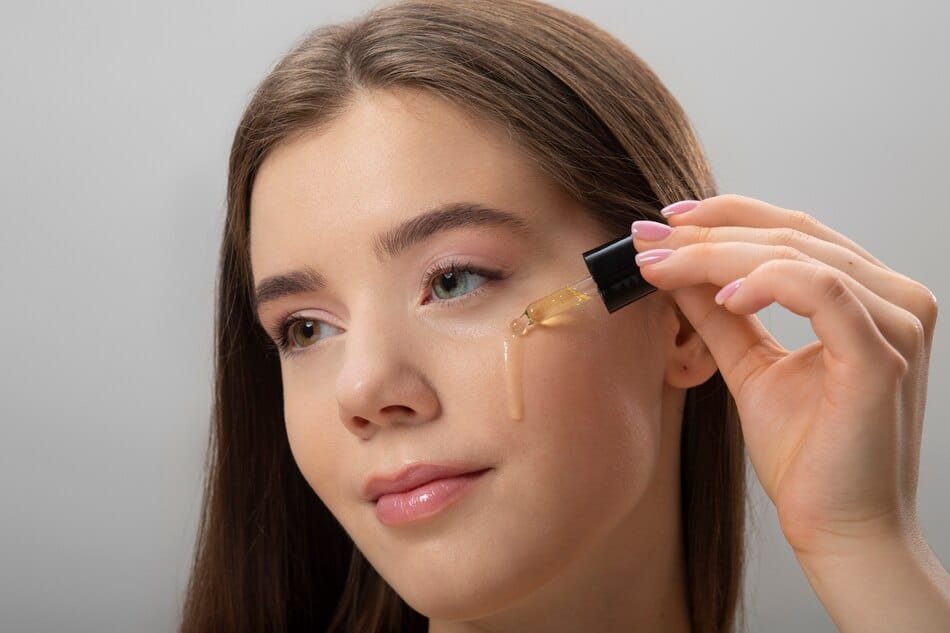Tilapia is a cheap way to get energy. Its high nutritional value is responsible for its many health benefits. Tilapia is the world’s second most raised fish. It originated in the Middle East and Africa, but experts found it was good for you and became famous worldwide.
Raising many tilapia fish was easy because they could grow in any conditions. But lately, worries about heavy metal poisoning have come up. We’re telling you the truth here. Read on to find out why eating tilapia fish is good for you, how to cook it, and if it’s safe.
What Is Tilapia?
The cichlid family is where tilapia live. This fish lives in freshwater and likes warm places like ponds, rivers, lakes, and small streams. It has a mild flavor. It has a long dorsal fin and stripes on the sides that make it look like a sunfish. The four kinds used for food are the Mozambique tilapia, the Blue tilapia, and the Nile tilapia. The history of Nile fish goes back to the time of the Egyptians.
Interestingly, tilapia was seen as a sign of rebirth. It is now raised in fields, and mixed fish are being made to meet the growing demand on the market. Most of the time, growth hormones that may be bad for people are put into them. Let’s consider all the good and bad things about Tilapia fish. To start, let’s look at the facts about diet.
Nutrition Facts About Tilapia Fish
Tilapia fish has few calories and is a good source of vitamins and minerals. Check out the list of nutrients it has.
- It has 36 calories.
- 7.3 grams of protein
- 0.7g of total fat
- 0.11 grams of polyunsaturated fat
- 0 grams of carbs
- 3.9 mg of calcium
- 9.5 mg of magnesium
- 106 mg of potassium
- 15.2 mg of selenium
- 0.2 mg of vitamin E
- 1.3 mg of niacin
- 1.7 mg of folate
- 0.5 mcg of vitamin B12
- 0.2 mg of pantothenic acid
Selenium in tilapia is thought to help the nervous system, and omega-3s in tilapia are thought to improve eye health.
Health Benefits Of Tilapia Fish
Healthier For Your Bones
Fish like tilapia are suitable for your bones. They contain Vitamin D and minerals like calcium and phosphorus needed for bone growth and health maintenance. A few recent studies have shown collagen type 1 from tilapia fish helpful in therapeutic medicine. In the lab, it has shown promise in helping bone cells grow back, and in dentistry, it can be used as a support biomaterial.
Protects Against Diseases Like Cancer
Selenium and vitamins in tilapia and other fish help fight cancer and heart diseases. Free radicals are less active when you have selenium in your body. This makes you less likely to get reactive stress. It stops good cells from changing into dangerous ones. Scientists have also discovered that hepcidin 1? 5, a short amino acid chain that fights microbes, can reduce inflammation and be used as a new way to treat cancer.
Beneficial For The Brain
Omega-3s, found in large amounts in fish, can help the brain work better because they protect neurons and improve mental performance. Selenium, found in large quantities in tilapia, has been shown to protect the brain from diseases like Alzheimer’s, Parkinson’s, and epilepsy. It makes more oxygen reach the brain, which helps keep the body’s fluids in balance. It not only puts nutrients into the body but also clarifies the incident.
Keeps The Heart Safe
Tilapia is also good for your health because it strengthens your heart. Since it has no carbs, it may also help manage diabetes and cholesterol. However, this only happens with wild tilapia and not with farmed tilapia, which is fed chemicals and usually has an uneven mix of omega-3 and omega-6 fatty acids. Cultured tilapias don’t have as many omega-3 fatty acids as wild tilapias. A new study says omega-3s can help lower high blood pressure and avoid strokes, heart attacks, and atherosclerosis.
Defeats Aging
Antioxidants and vitamin E found in tilapia are suitable for your skin. They even out your skin tone and make it look healthy. Both vitamins are potent antioxidants, which help eliminate dangerous free radicals and lower stress and inflammation. Also, they protect the skin from photodamage, which is damage to the skin from UV rays. This keeps your skin, bones, lungs, and cells healthy and young.
Weight Loss
Because it is high in protein and low in fat, tilapia can help you lose weight when you eat right and work out. It has a few calories and a lot of protein. You can cut down on calories and give your body the nutrients to work along with them. It can also be part of a diet for people who want to get in shape.
For Thyroid Patients
Selenium in tilapia is essential for keeping the thyroid gland in check and helping hormones work better. If your thyroid gland works properly, it will keep your metabolism high and prevent you from gaining or losing weight or getting any other disease that can be linked to a poorly functioning thyroid.
Is Eating Tilapia Safe?
Is halibut good for you? Yes, if the fish was caught in the wild. But if it is grown on a farm, there are many worries that you should be aware of so that you can buy or order tilapia with confidence. Know these things.
Risk Of Getting Arsenic Poisoning
It’s sad but true. Taiwan scientists found arsenic in bred tilapia fish. Arsenic is a metallogen that can cause cancer, and being exposed to it for a long time raises the risk of getting cancer.
Risk Of Getting Mercury Poisoning
You may have heard that tilapia or fish can make you sick with mercury. It’s true. Scientists have found that tilapia that live in freshwater or aquaculture can build up mercury in their bodies. However, mercury poisoning from farmed tilapia is about 5% more likely to kill than from wild tilapia.
Can Boost Inflammation
Tilapia is sometimes called “aquatic chicken” because it is high in protein and good for you in many ways. However, fish raised in farms can worsen inflammation in the body, which can cause pain, weight gain, and heart disease.
Omega-3 And Omega-6 Ratio Not Balanced
The best amount of omega-3 to omega-6 fatty acids is equal to one-to-one. But inbred tilapia, the number is 2:1 or 4:1, which may lead to many health problems, like high blood pressure and heart disease.
Risk Of Cancer
Fish raised on farms are exposed to heavy metals that end up in people’s bodies. Cancer and DNA changes can happen if you eat too many of them. Also, not all fish on farms are raised in clean and healthy settings, which can cause many other diseases.
PCBs And Pesticides
Polychlorinated biphenyls (PCBs), organochlorine (OC), organophosphorus (OPs), hexachlorobenzene (HCB), and trifluralin herbicides have some been found in tilapia grown on farms by researchers. We can see both its pros and cons.
Which Is Better: Tilapia Or Salmon?
Salmon and tilapia have about the same amount of energy. The main difference between them, though, is their calories. Salmon has 208 calories per 100 grams, while tilapia only has 96 calories per 100 grams. The latter’s low-calorie value is due to its only 1.7 g of fat, while salmon has 13.4 g of total fat.
Tilapia is a better source of lean protein because of this, which makes it great for people who want to lose weight. Still, both types of fish are healthy and full of good things for you, like calcium and magnesium. You can pick either one based on your personal taste and nutritional goals.
Tilapia is a mild-tasting fish that lives in freshwater. It doesn’t cost much and is an excellent protein source. Tilapia’s many health benefits come from its high nutrients and low calories. Eating fish can help your bones grow and stay strong.
It also lowers the risk of cancer, boosts brain health, keeps the heart healthy, fights the signs of aging, and helps you control your weight. Tilapia can be used in a lot of tasty recipes. But fish raised in farms may poison you with arsenic and mercury and make inflammation worse. So, only buy them from a reliable source and talk to your doctor in case of an emergency.

Mariyam
Dr. Mariyam Hamdan is a highly skilled gynecologist specializing in women's health. With a medical degree from American University Sharjah, United Arab Emirates, she offers expert care in preventive services, reproductive health, pregnancy management, and menopausal support. Dr. Mariyam is dedicated to providing personalized, patient-centered care, and is committed to educating and empowering women to take charge of their health.







